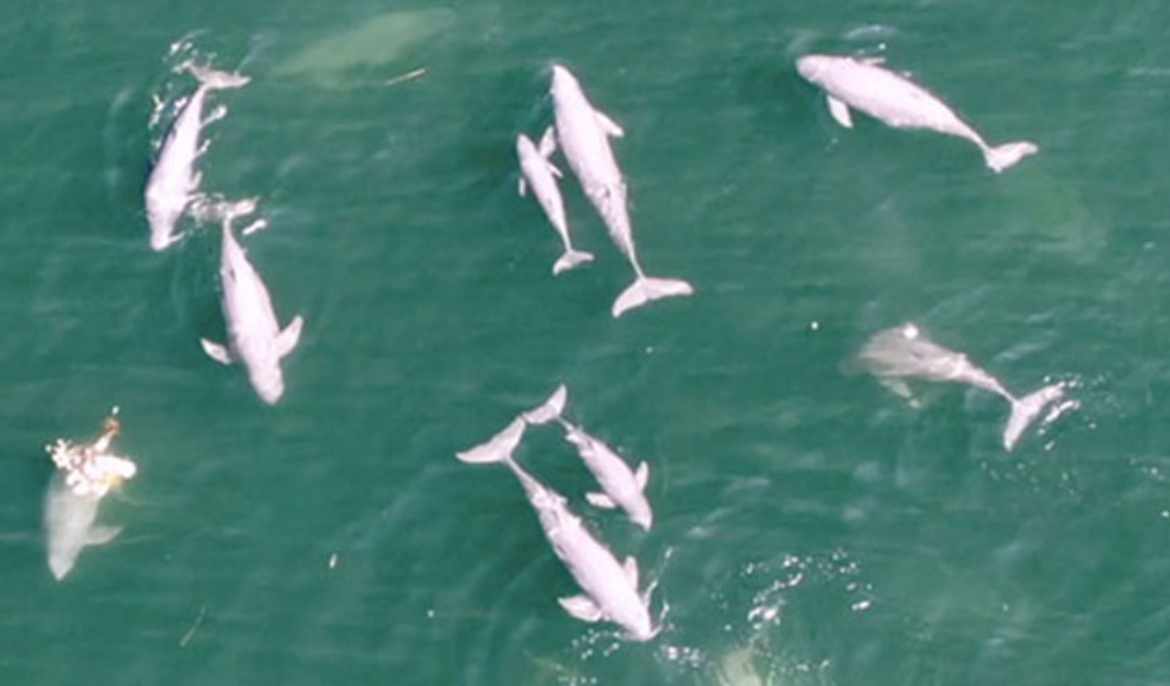Synopsis: The agreement affirms Kingdom’s support for protecting marine biodiversity and ensuring fair and sustainable use of marine genetic resources in areas beyond national jurisdiction.
The Royal Government of Cambodia (RGC) Monday officially signed the United Nations Convention on the Law of the Sea on the Conservation and Sustainable Use of Marine Biological Diversity of Areas Beyond National Jurisdiction (BBNJ Agreement), according to the Ministry of Foreign Affairs and International Cooperation (MFAIC).
The agreement signed in France marked Cambodia’s strategic move to protect marine biodiversity while positioning the Kingdom to benefit economically from the sustainable use of marine genetic resources in areas beyond national jurisdiction.
Based on the press release of the UN Department of MAFIC on Wednesday, Cambodia formalised its participation in the BBNJ Agreement during a special treaty event on Monday held in conjunction with the Third United Nations Ocean Conference (UNOC3) in Nice city.
“This landmark agreement affirms the Kingdom’s support for protecting marine biodiversity and ensuring fair and sustainable use of marine genetic resources in areas beyond national jurisdiction,” the statement said.
In addition, Cambodia endorsed the global initiative to combat plastic pollution by supporting the ‘Nice Wake-Up Call’, a declaration backed by most members of the Intergovernmental Negotiating Committee on Plastic Pollution (INC).
The initiative calls on all parties to seize the historic opportunity to finalise an ambitious, universal, effective, and legally binding plastics treaty. Cambodia’s support highlights its collective resolve to end plastic pollution for the benefit of current and future generations, as well as the health of the planet.
On the sidelines of UNOC3, Prime Minister Hun Manet held bilateral meetings with leaders and heads of delegation from several countries and international institutions to bolster cooperation and strengthen diplomatic ties.
During a meeting with French President Emmanuel Macron, Mr Hun Manet reaffirmed Cambodia’s strong commitment to environmental protection, underscored by the Kingdom’s signing of the BBNJ Agreement.
Speaking to Khmer Times, Seun Sam, a policy analyst at the Royal Academy of Cambodia (RAC), said he has been closely observing Prime Minister Hun Manet’s second visit to France, particularly given Cambodia’s historical ties with its former coloniser.
Sam noted that the relationship between the two nations has experienced both harmony and tension over the centuries. “Nonetheless, we must acknowledge that without France’s support, Cambodia might have disappeared from the world map,” he said.
Commenting on the BBNJ Agreement, Sam praised Cambodia’s decision to join the global ocean governance framework.
He highlighted the Kingdom’s longstanding engagement in related international discussions, dating back to 1983. “Later, in 2015, King Norodom Sihamoni participated in the UN Climate Change Conference (COP21) in Paris,” he added.
Sam explained that although Cambodia is not a landlocked country, signing the BBNJ Agreement demonstrates a strong commitment not only to marine conservation but also to harnessing economic opportunities associated with the sustainable use of marine genetic resources.
He pointed out that the agreement enhances Cambodia’s potential to benefit from future advancements in marine biotechnology, pharmaceuticals, and other ocean-based innovations—key sectors within the emerging blue economy.
He added that the move is expected to deepen Cambodia’s engagement in global marine governance frameworks and support its long-term strategy to diversify the national economy through responsible participation in high-seas research and resource-sharing mechanisms.



